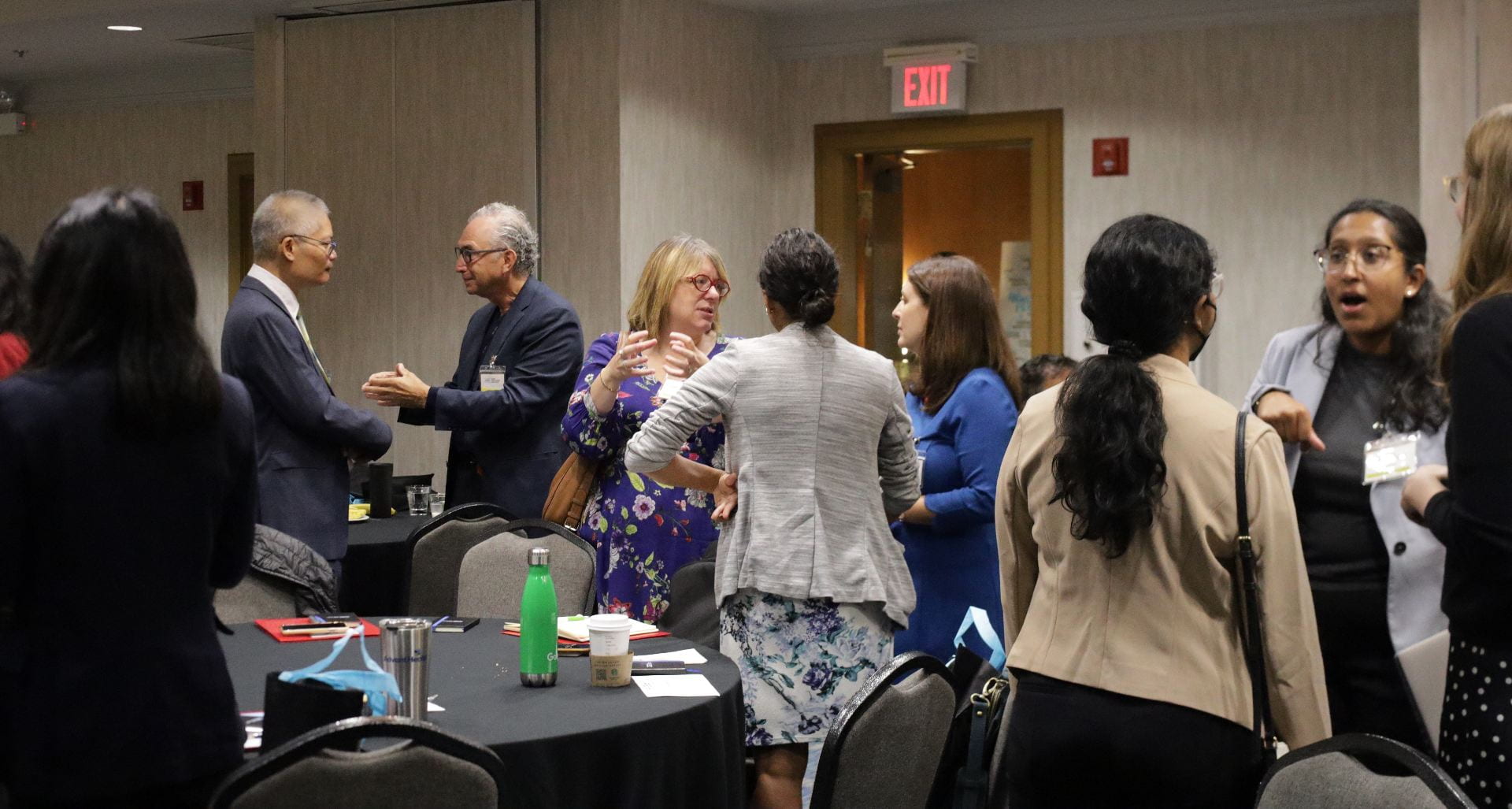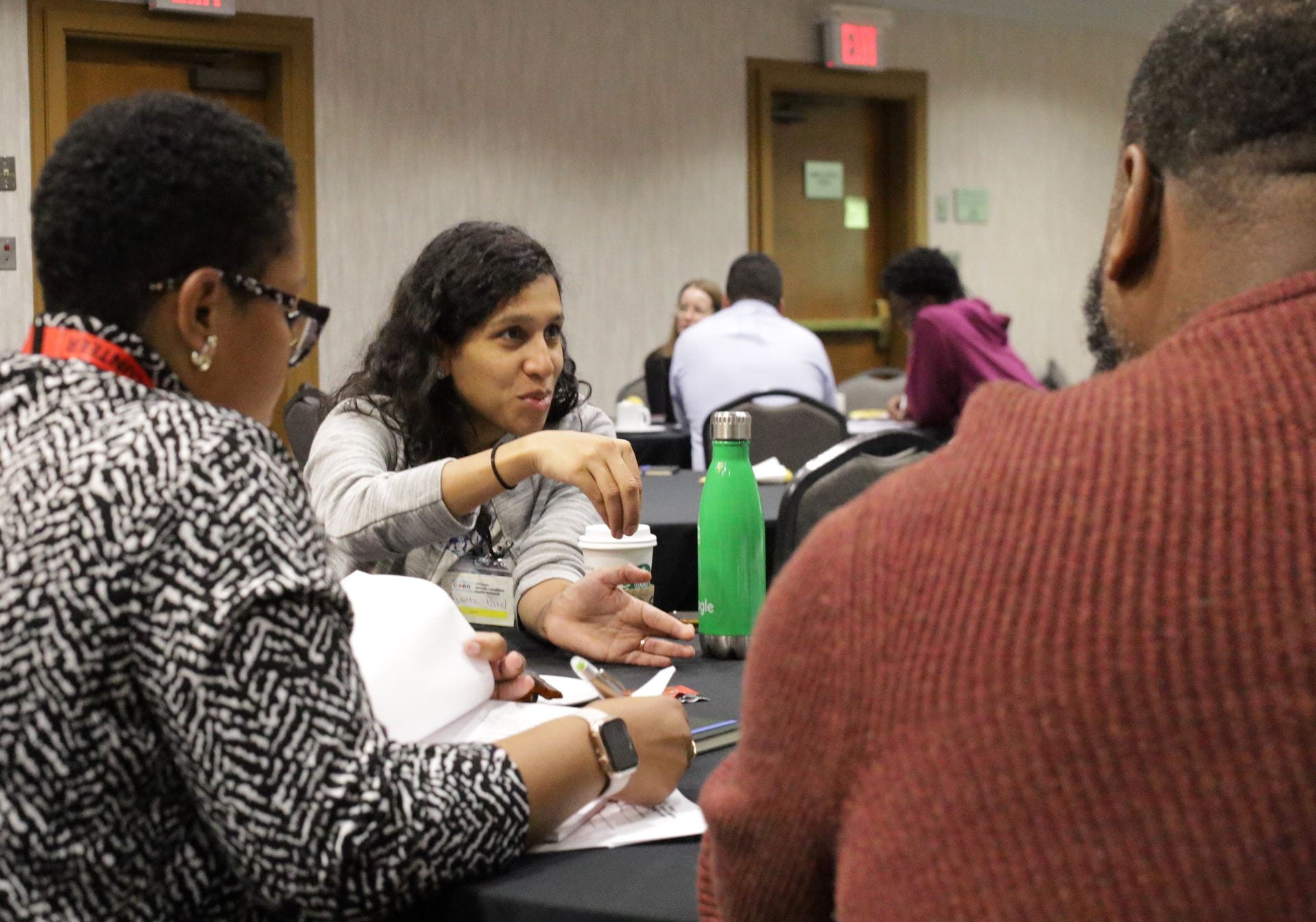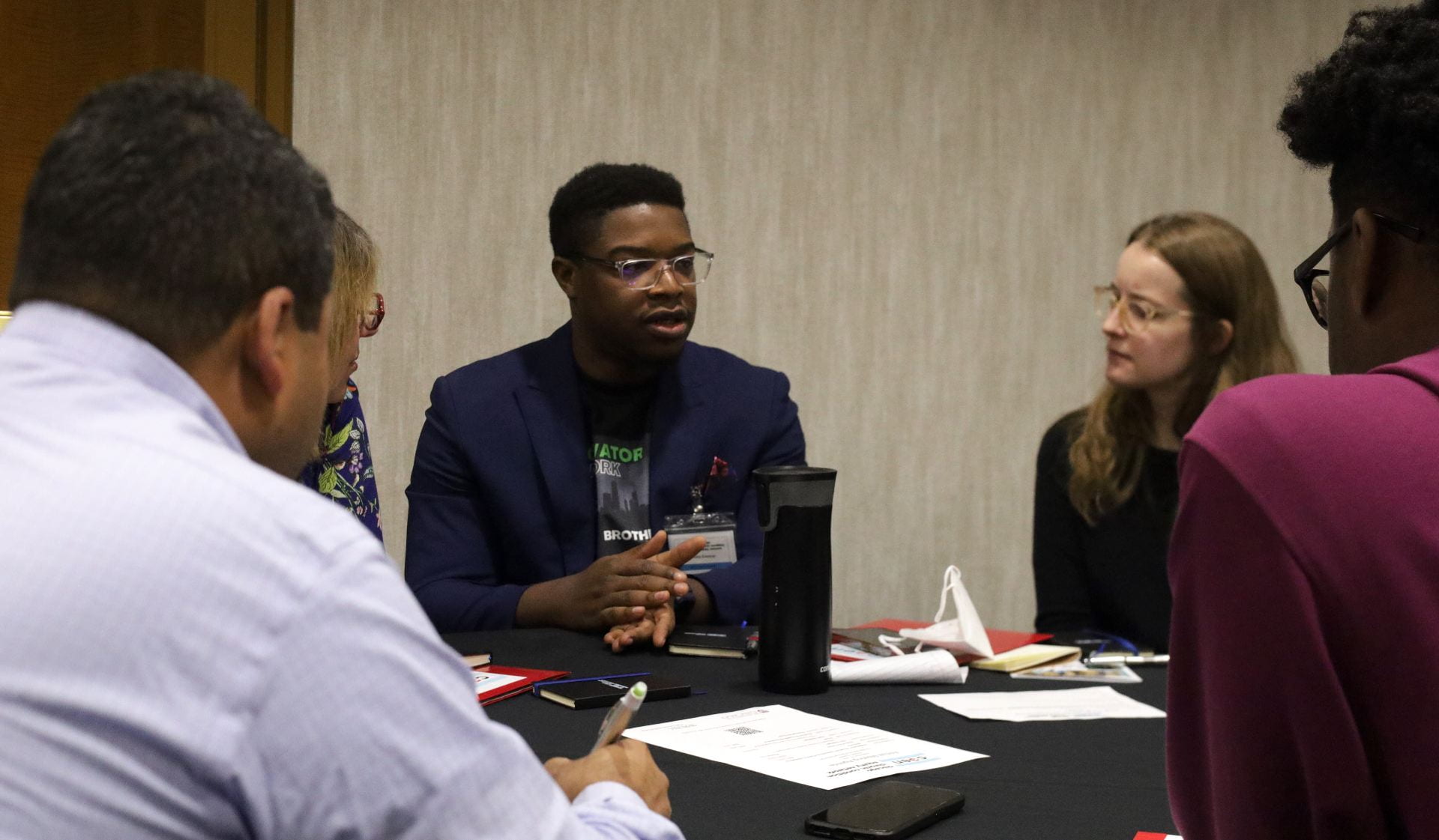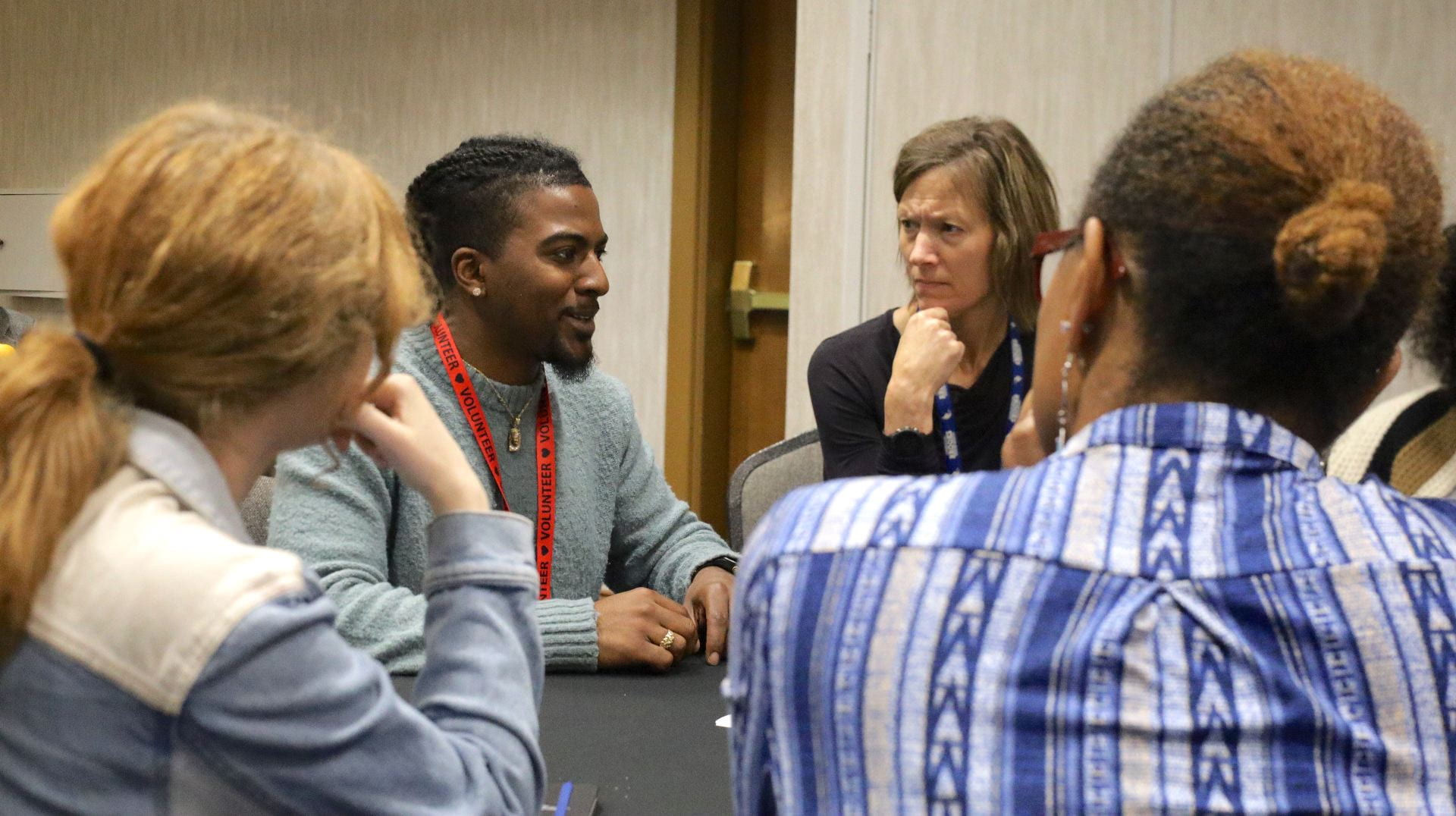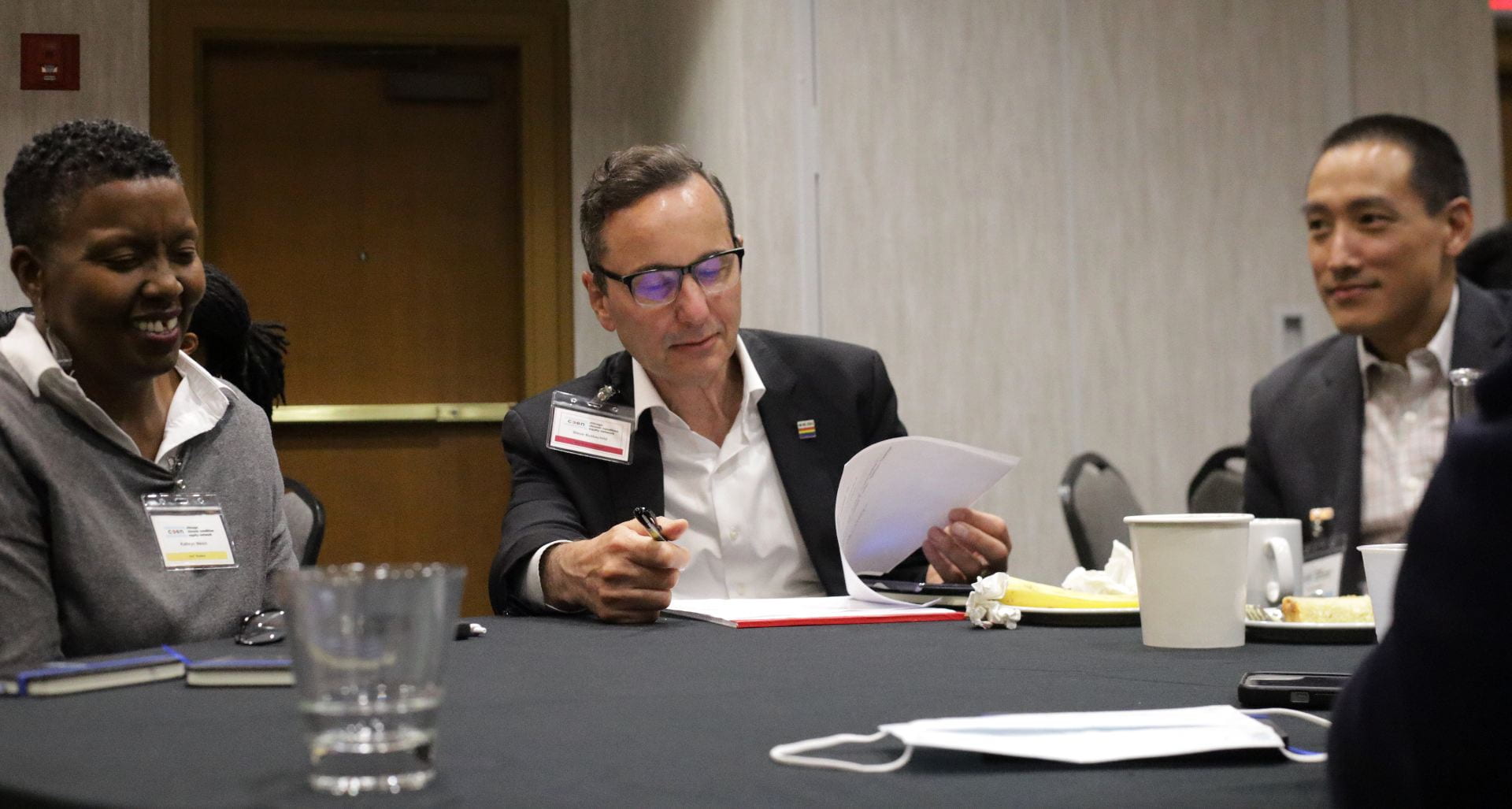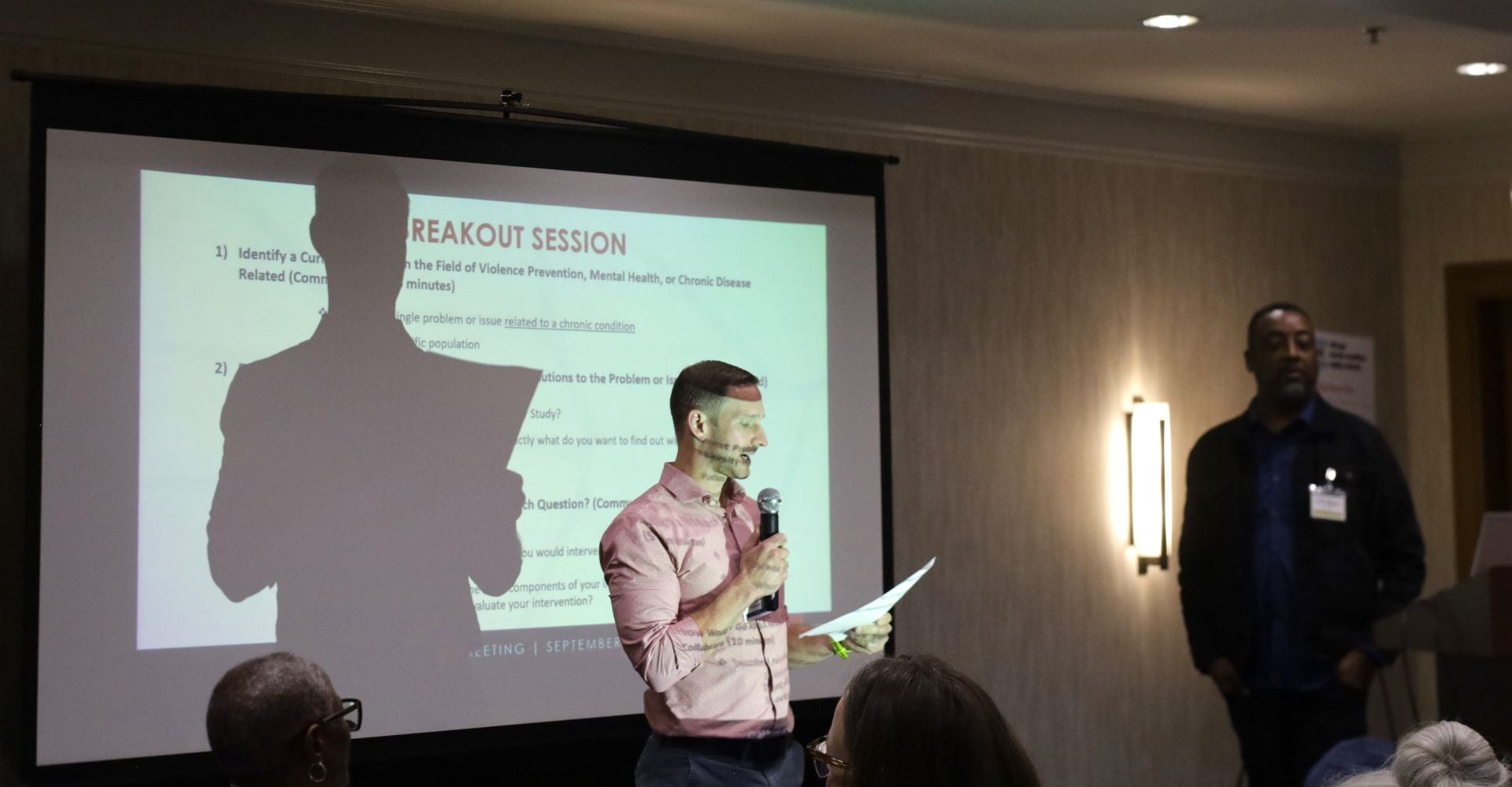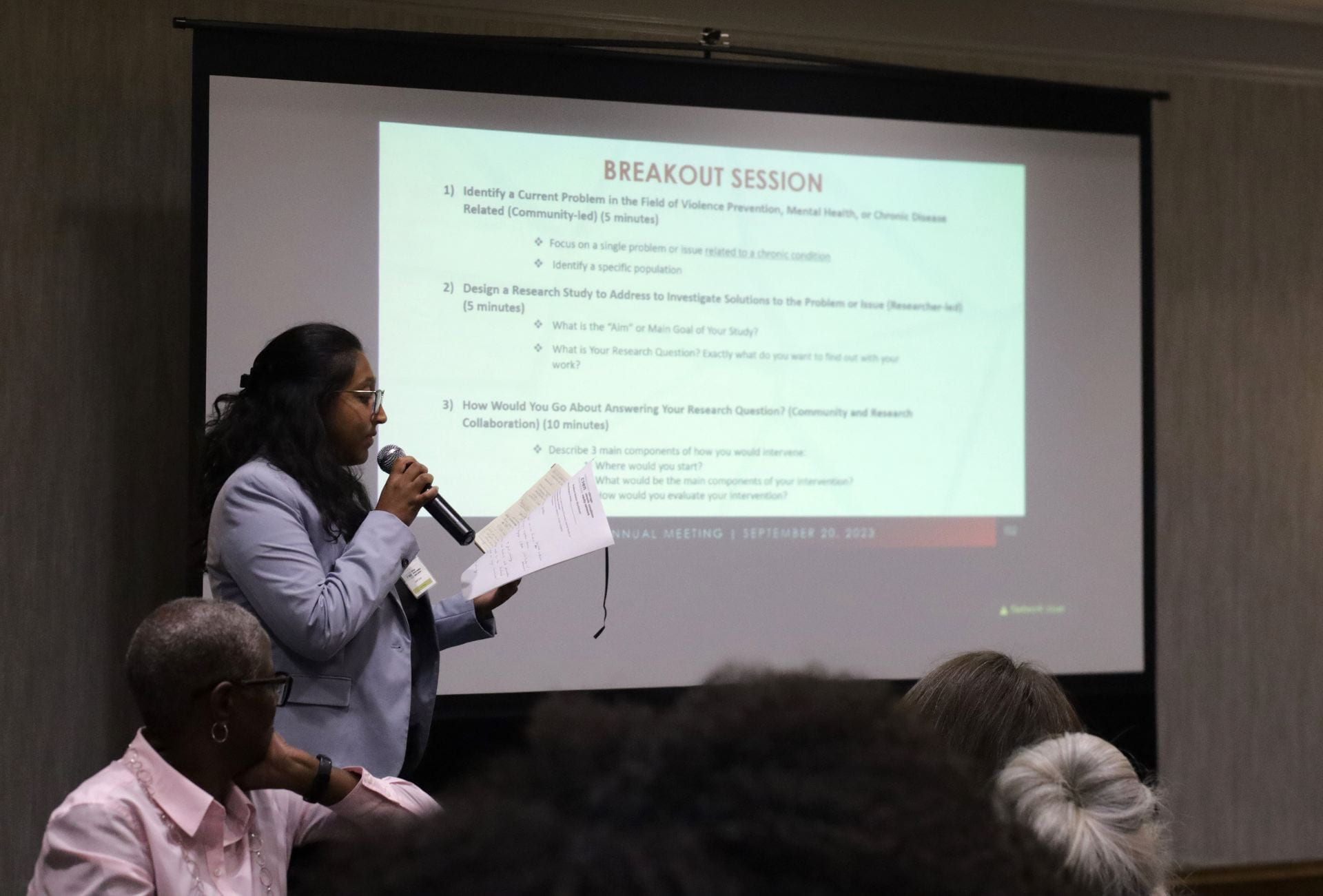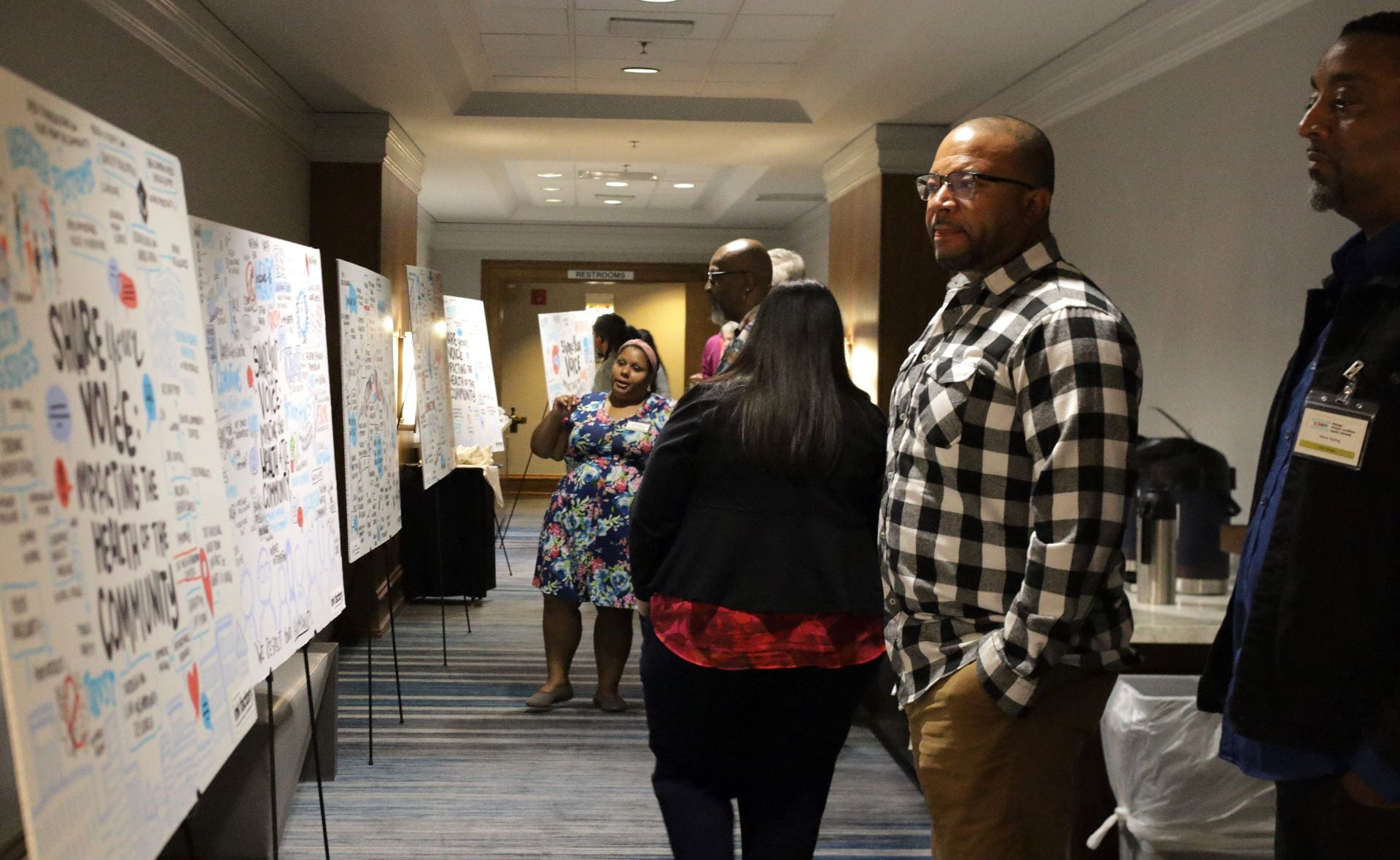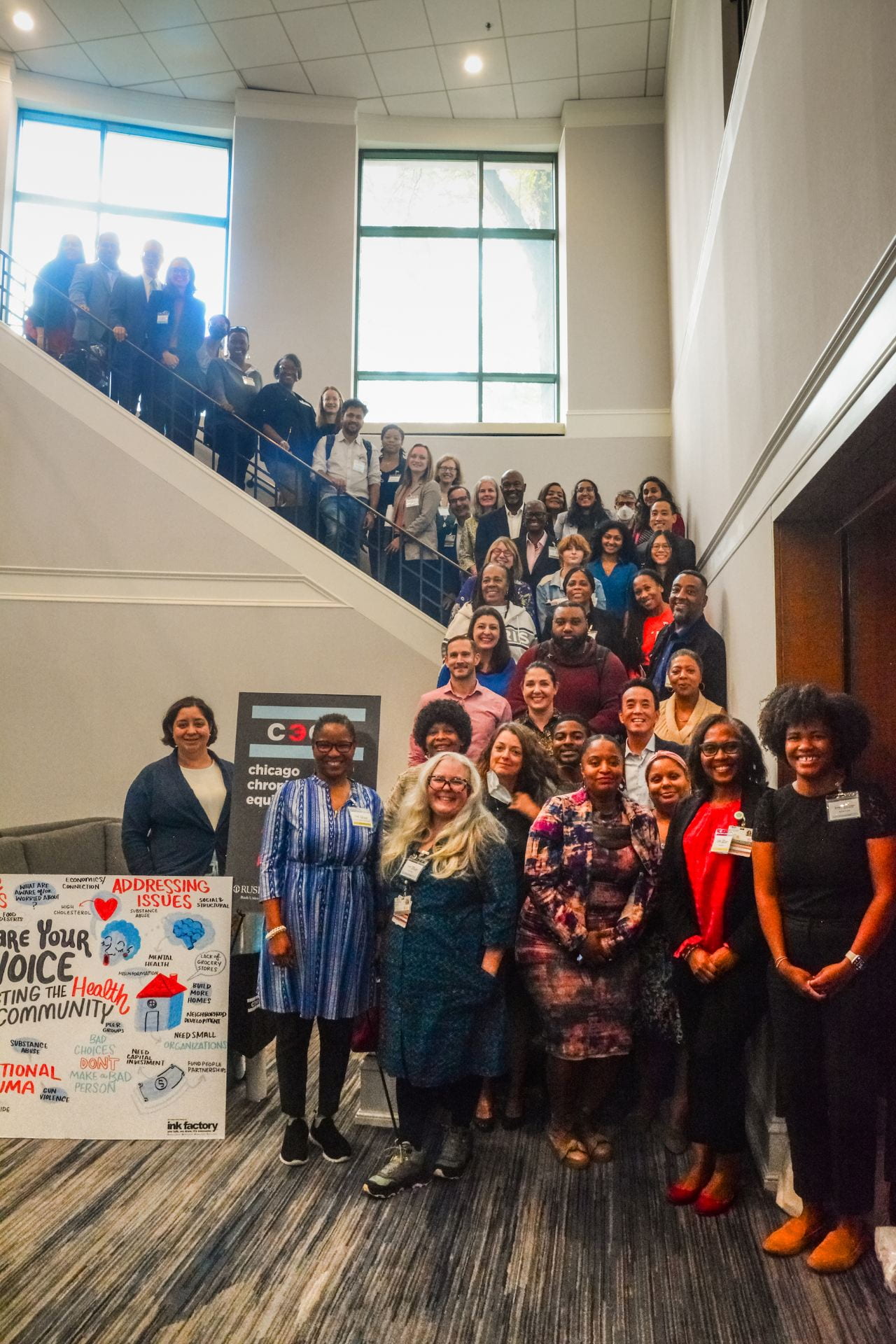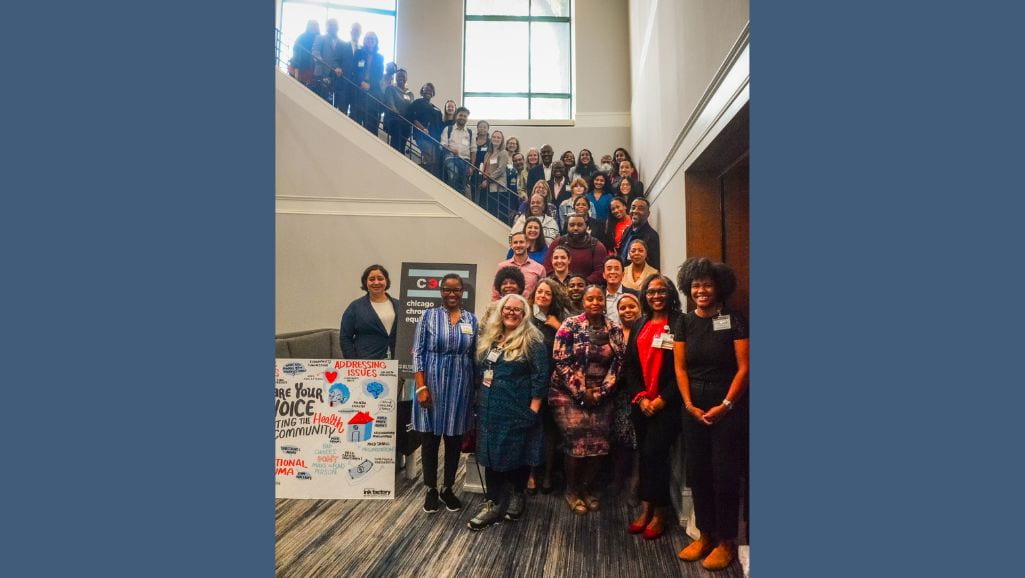On September 20, 2023, C3EN held its second annual meeting at the UIC medical district Marriott Hotel, convening over 70 community partners and researchers over a half day of presentations, breakout groups, and a poster session.

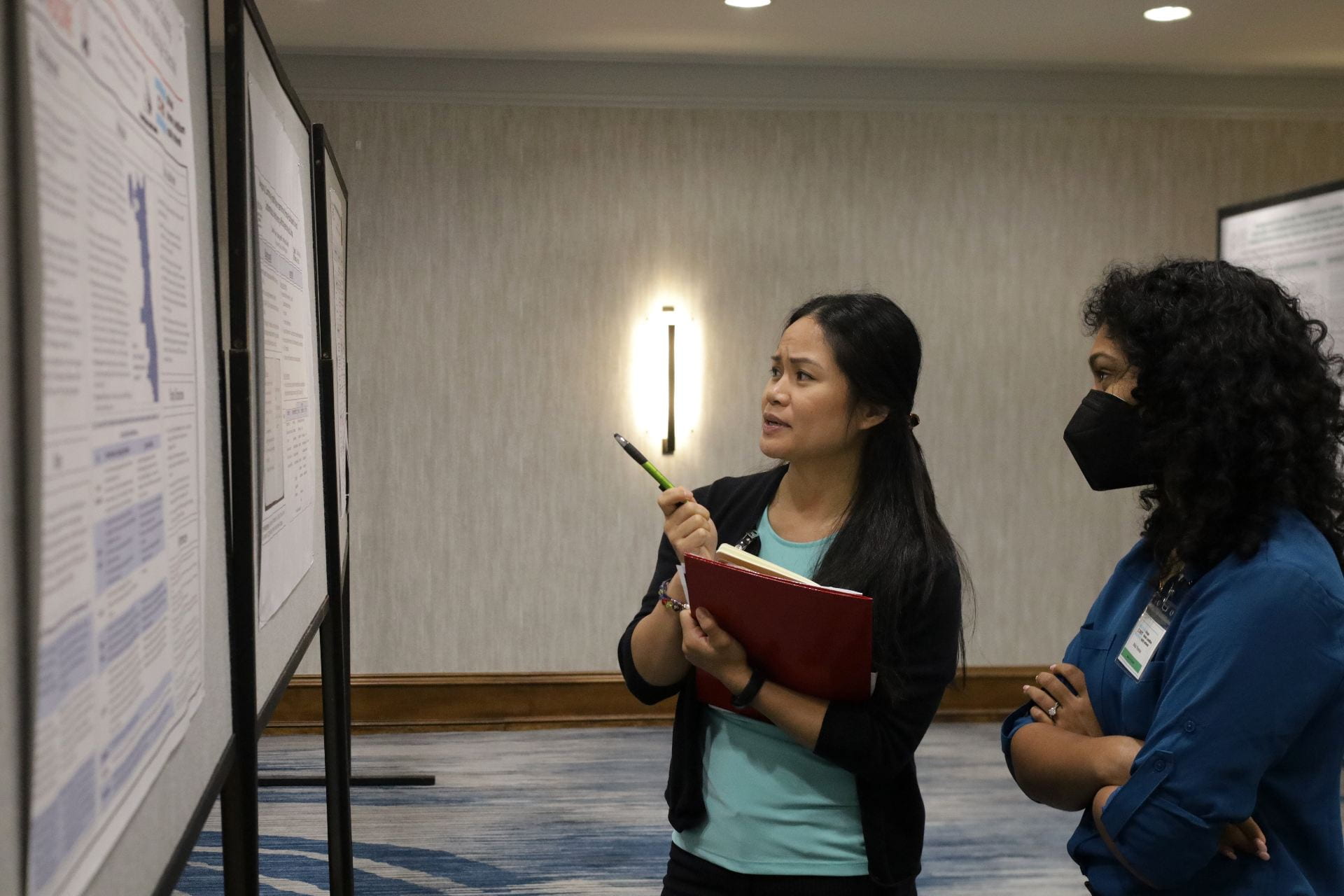
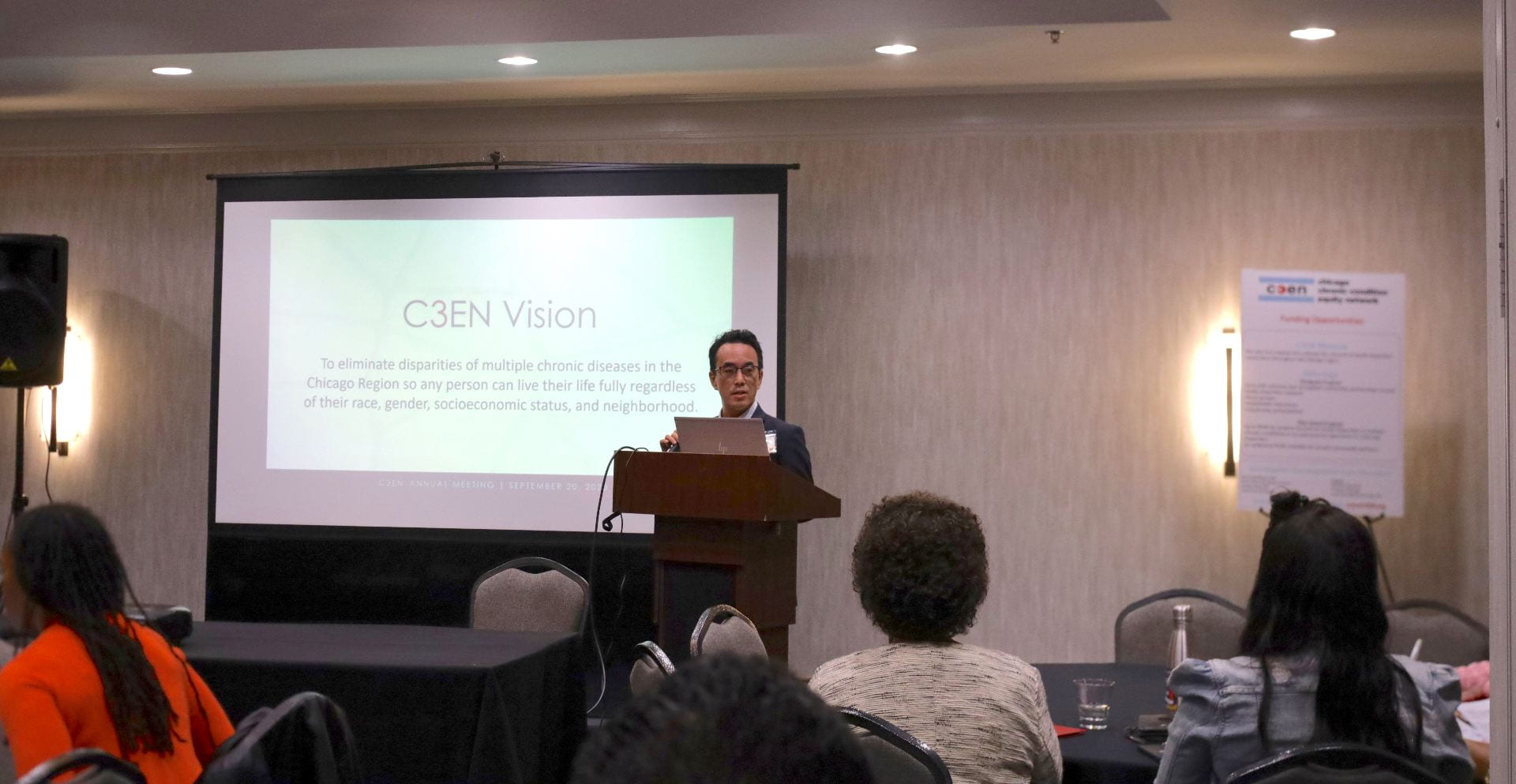
Co-director Elbert Huang welcomed members with a state of the center presentation that reiterated C3EN’s mission of eliminating health disparities in the Chicago region and outlined the center’s research projects in partnership with community-based organizations. Health disparities in Chicago have roots in social determinants of health and unequal access to evidence-based care, he said, pointing out that a long history of racial segregation and unequal distribution of resources in the city require innovative local solutions to bridge these gaps in health care. C3EN aims to cultivate new investigators of health disparities, to strengthen dialogues between researchers and community-based organizations, and to develop a community-based research network to test the effectiveness of these new interventions. Pilot awardees Saria Lofton, Kirsten Dickens, and Chuka Emezue were cited for their early success in projects on nutritious eating, trauma therapy for homeless Black women, and a smartphone app against violence. To close, Huang outlined short- and long-term goals for the center and noted how community organizations were already shaping C3EN’s research.
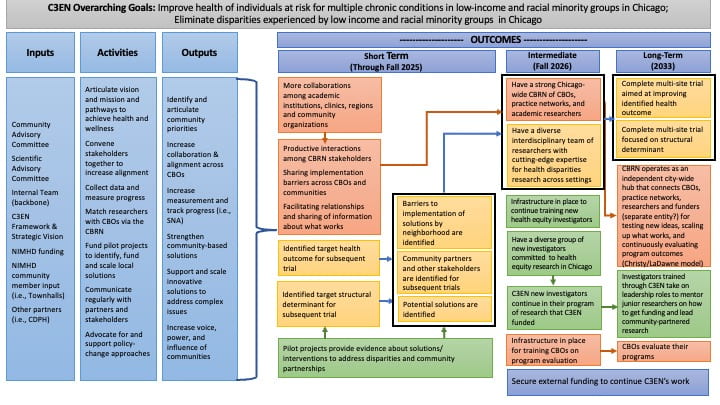
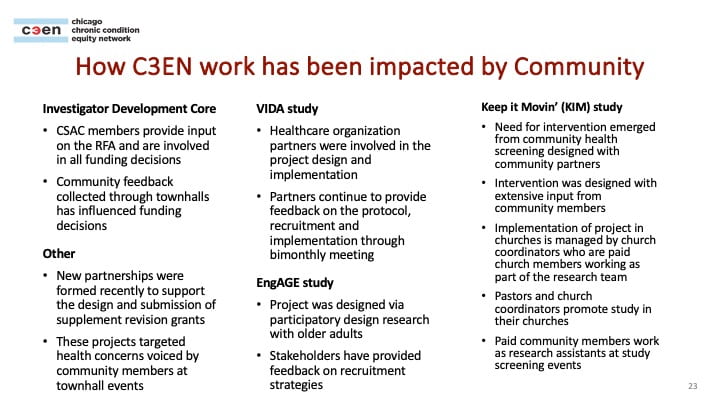
In his presentation “Addressing Medical and Social Needs: Culture and Antiracism and Payment,” C3EN Scientific Advisory Council member Dr. Marshall Chin, Richard Parrillo Family Distinguished Service Professor of Medicine at the University of Chicago, discussed alternative payment models for health equity. Chin called for the integration of medical and social needs that acknowledge racism, respond to cultural differences, and coordinate care among a team that includes providers, community health workers, families, and communities.

In her presentation “The Transparency of Community Engagement,” Community Stakeholder Advisory Council member Dr. Paris Davis, project lead of Pastors4PCOR, encouraged more transparent communication among researchers, community leaders, community-based organizations, and community members. “We really do need each other,” said Davis. Community organizations must “get to the table so people can hear our voices,” she said, while emphasizing to researchers, “When you bring us to the table, walk us to the table.” Researchers and community-based organizations must mutually take responsibility for their role in collaborations, acknowledge the expertise of others and take ownership of their own. “We are all works in progress,” she concluded.
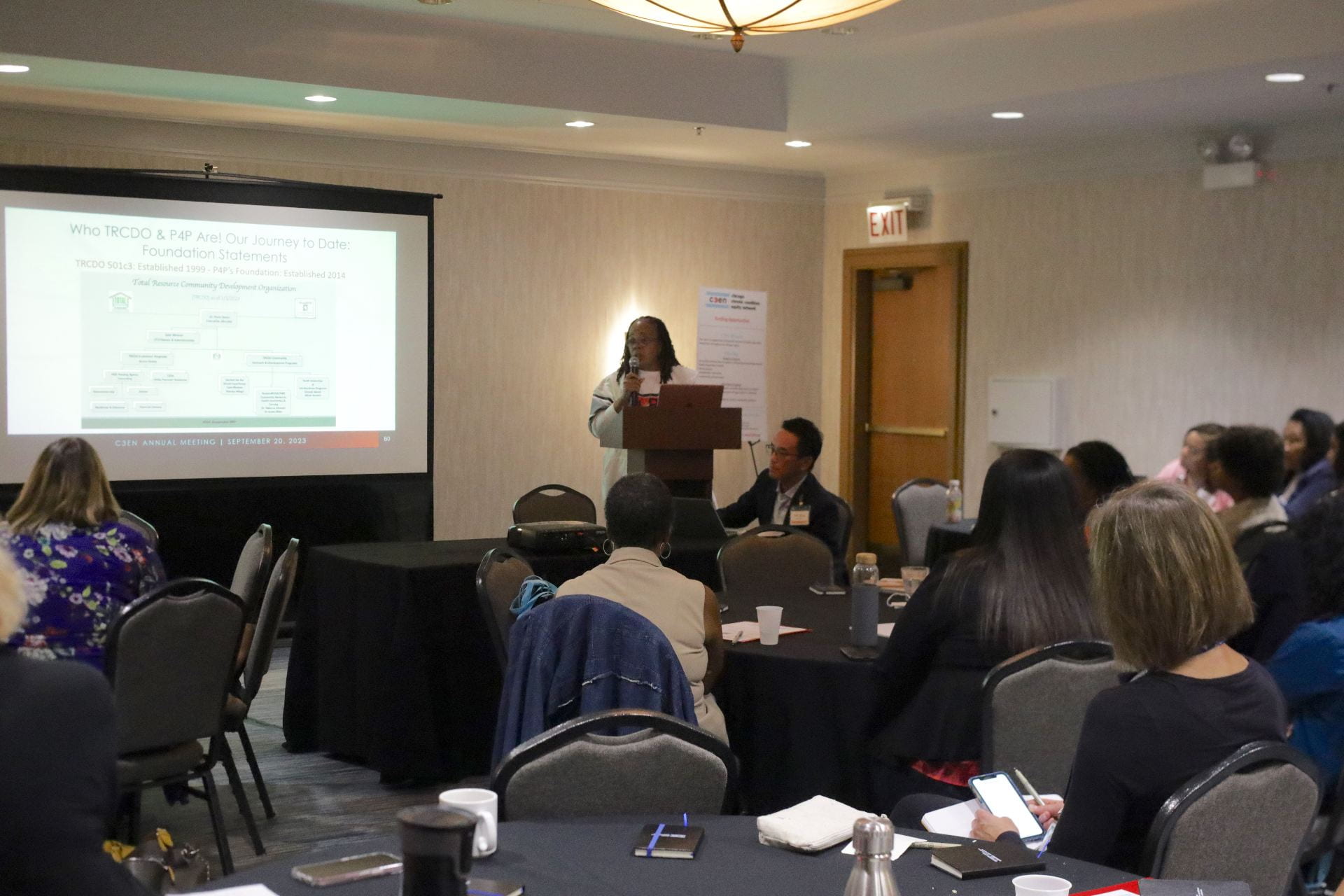
“Tension can be positive—we need it to make us all better,” offered CSAC member Steve Epting of the Alive Faith Network.
During breakout groups on topics including mental health, violence, food insecurity, and chronic diseases, representatives of community partners and researchers brainstormed on potential research together, offering brief presentations on the projects they had devised–including pairing youths and elders to coregulate mental health, a study on suicide in HBCUs, a sports-based intention for violence, an educational intervention to promote heathy eating for diabetes, in-person cooking classes and recipe development to be shared over TikTok for diabetes, a Chinatown-focused study on diabetes, and an experiment in changing media consumption to change the incidence of violence.
